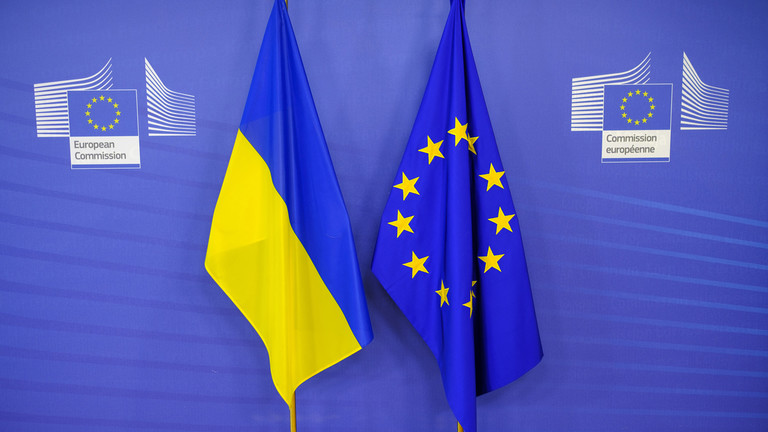All members of Russia’s Duma, parliament’s lower house, will be hit with EU sanctions, which typically involve travel bans and asset freezes.
“This package of sanctions that has been approved by unanimity by the member states will hurt Russia, and it will hurt a lot,” EU foreign policy chief Josep Borrell told a news conference alongside France’s Foreign Minister Jean-Yves Le Drian at a meeting in Paris.
“We will raise the level of sanctions in proportion to Russian behavior,” Borrell noted.
He added that the sanctions package would also affect the Russian finances, limiting Moscow’s ability to access EU’s financial markets, but did not provide any further details on that.
The official has warned that the sanctions may even get worse depending on Russia’s actions in relation to Ukraine.
British Prime Minister Boris Johnson and French President Emmanuel Macron agreed to continue to work together to target those who supported Russian President Vladimir Putin’s “aggressive approach”, Johnson’s office has announced.
“The leaders agreed they needed to continue to work in lockstep to target Russian individuals and entities bankrolling President Putin’s aggressive approach,” a spokesperson for Johnson stated after the British and French leaders spoke by phone.
“Russia’s actions don’t just threaten Ukraine’s sovereignty, but are a blatant attack on freedom and democracy, the leaders agreed,” the spokesperson added.
NATO Secretary General Jens Stoltenberg on Tuesday said Russia has now moved “from covert attempts to destabilize Ukraine to overt military action.”
“Moscow has now moved from covert attempts to destabilize Ukraine to overt military action. This is a serious escalation by Russia, and a flagrant violation of international law,” Stoltenberg stated at a news conference in Brussels following a meeting of the NATO-Ukraine Commission.
He called the Russia-Ukraine crisis “the most dangerous moment in European security for a generation.”
“NATO is resolute and united in its determination to protect and defend all allies. In the last weeks, allies have deployed 1000s more troops to eastern part of the alliance and placed more on standby. We have over 100 jets at high alert and there are more than 120 allies’ ships at the sea from the high north to the Mediterranean,” he added.
“We will continue to do whatever is necessary to shield the alliance from aggression,” he continued.
The United States has said Russia’s deployment of troops into two Moscow-backed, self-proclaimed republics in eastern Ukraine amounts to the “beginning of an invasion”.
Deputy NSA Jonathan Finer told CNN on Tuesday that Washington’s response would be “swift and severe”, with the White House understood to be preparing sanctions.
Earlier, the United Kingdom slapped sanctions on Russian banks and high net worth individuals while Germany, another of Kyiv’s Western allies, halted the approval process for the Nord Stream 2 gas pipeline project.
Moscow has brushed aside the threat of retaliatory measures from the West, with Foreign Minister Sergey Lavrov saying Russia was accustomed to sanctions.
